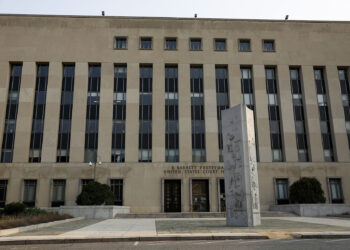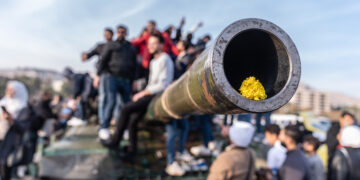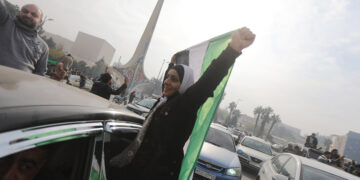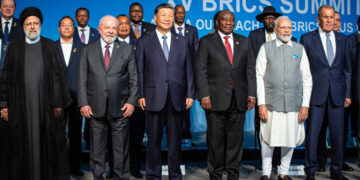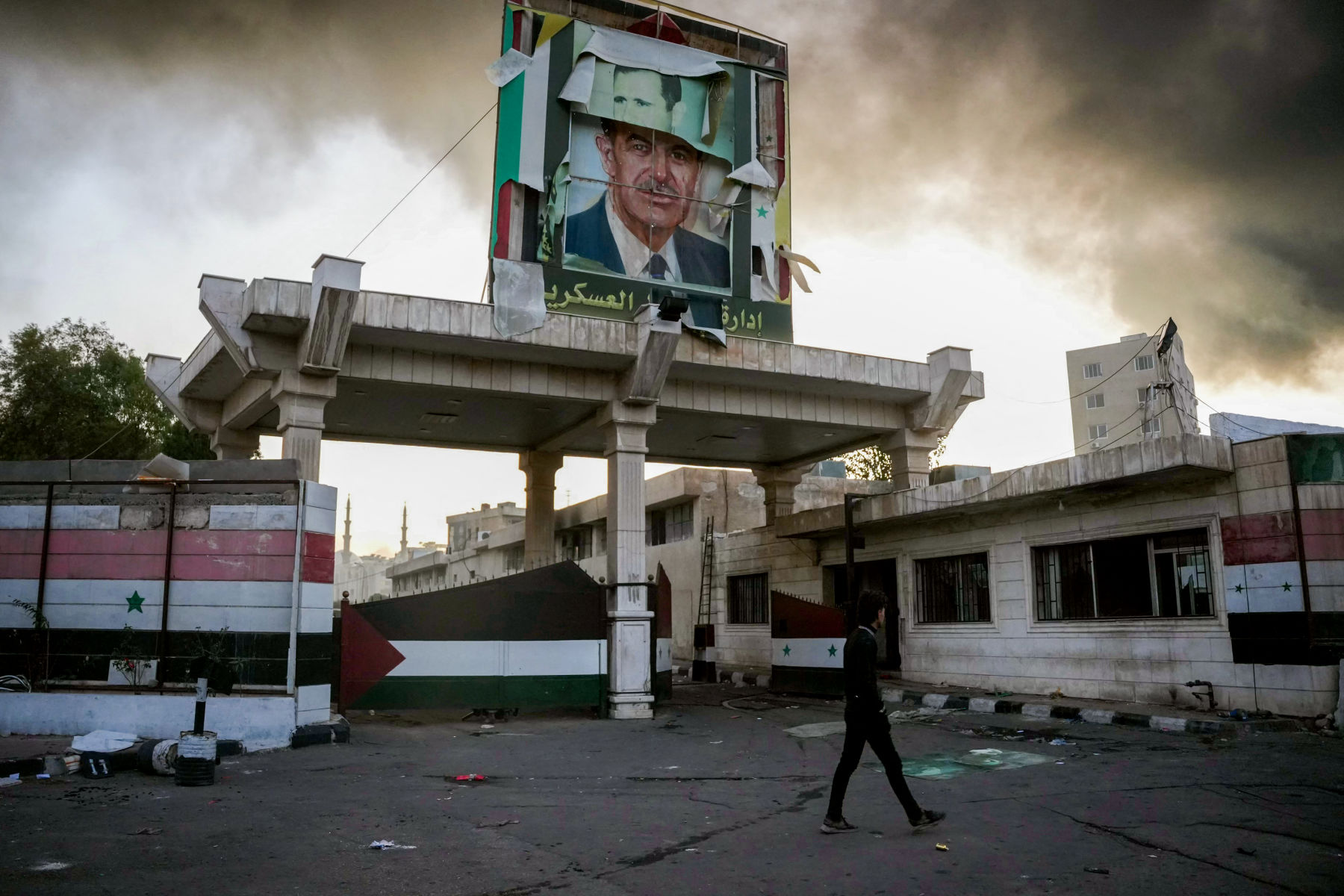Destabilizing policies in the region, in particular the war in Yemen, have made Saudis less safe, while costing thousands of civilian lives in its neighboring country.
عربي
(Washington D.C., September 23, 2021) – Despite much progress in developing the country over the past several decades, the Saudi government's increasingly absolutist monarchical rule and systematic human rights abuses give the Saudi people little reason to celebrate the country's 89th National Day, the seventh under King Salman and his son Crown Prince Mohammed bin Salman (MBS), said Democracy for the Arab World Now (DAWN).
Eighty-nine years since the country's founding, DAWN identified the absence of democracy, pervasive human rights abuses, extensive surveillance of the citizenry, reckless military intervention in Yemen, an opaque and unsound economy, and a globally damaged reputation as major sources of concern in the country.
"Nearly nine decades since Saudi Arabia's founding, it's plainly humiliating that the Saudi people still have no right to elect their leaders, participate in their country's governance, or exercise the basic freedoms that most people around the world enjoy," said Abdullah Alaoudh, Gulf Director at DAWN. "This Saudi National Day is a good opportunity to remind Saudi leaders that respecting their citizens means respecting their human rights to choose their leaders, to freely express their opinions, and to do so under the protection of laws and courts that uphold their rights, not the patronage of kings and princes."
Saudi Arabia's human rights situation under the reign of King Salman and Crown Prince MBS has plummeted to its lowest point, impacting the daily lives of Saudis and breaking from the country's long-standing traditions and values. The Saudi autocracy has cast its shadow over all significant decisions in the Saudi state and its institutions, including the Saudi economy, allowing no meaningful checks and balances on the government. The Saudi government is also frivolously spending billions for MBS's Vision 2030, though Saudi citizens have had no voice in the plan or its exorbitant costs. The government under King Salman has simultaneously raised taxes and cut subsidies, effectively increasing the cost of living for Saudis while decreasing economic assistance, and obliterated what little independence and power the private business community in the country previously had.
Allowing MBS to pursue deeply destabilizing policies in the region, in particular the war in Yemen, have made Saudis less safe, while costing thousands of civilian lives and tens of thousands of civilian injuries in its neighboring country. Far from enhancing Saudi Arabia's standing in international affairs and the Arab world, the government's actions under MBS's policies have stained the country's reputation globally and weakened its relationships with its allies.
"The undeniable reality is that governance, the rule of law, and basic rights have deteriorated under King Salman and MBS in ways that are unprecedented in modern Saudi history," said Alaoudh. "For many Saudis, decreased government subsidies and increased taxes, together with the erratic decisions of an unqualified, unaccountable, and arrogant crown prince, have not only caused much suffering, but also pushed the country backwards in what was hoped to be a path to democratic reforms and a constitutional monarchy."
- Increasing Autocracy and Lack of Democracy Robs Saudis of their Voice
Instead of bolstering political institutions and encouraging a more democratic and inclusive country through nascent steps taken by their predecessors, King Salman and MBS have orchestrated the greatest concentration of power in Saudi Arabia's modern history. The current government disposed of decades of monarchic rule that had been based on some diversity and consultation, which, although far from perfect, allowed the Saudi people some voice in how their country was governed. Saudis now find themselves at the mercy of a king who has granted a great deal of power to his erratic and unqualified son, with near unlimited powers and unchecked authority over the country's military and security forces and economy. The monarchy continues to prevent Saudis from forming political parties, actively participating in public life, voting for their representatives, or peacefully protesting, meaning Saudis have little to say as to how their country is governed or how they may live their lives.
- Rampant Human Rights Abuses, Constant Surveillance Make All Saudis Vulnerable
Rampant government human rights abuses coupled with expansive surveillance have increasingly made the country operate like a police state where citizens fear that even perceived slights can have serious repercussions for them and their families. The Saudi State Security Agency arbitrarily detains and forcibly disappears people with impunity. Former prisoners have described being held in secret detention facilities and brutally tortured by security officials. The Saudi government consistently resorts to collectively punishing families of activists, critics, and perceived political opponents, and has arbitrarily banned several thousand Saudis from traveling. In turn, the Saudi government constantly monitors social media and the Internet, utilizing spyware and online trolls to silence dissent and drown out criticism. This combination of rampant abuses and constant surveillance creates a state where no Saudi feels entirely safe.
- Distorted Economics Diminish Private Sector, Place a Heavier Burden on the Poor
Recent policies have placed a heavier burden on less fortunate Saudis while also distorting the economy and sapping a once thriving private sector of its autonomy. The government under King Salman has moved aggressively to destroy the wealth of the country's top business leaders, most notably during the November 2017 Purge, when it detained 400 of the wealthiest and most influential Saudis, from business tycoons to princes, in the Ritz Carleton without due process, and then coerced, beat, and tortured them into handing over their assets. Under the control of MBS, the Saudi government has distorted the country's economy by unduly influencing its foreign investments and trade, and pursuing massively expensive vanity projects as part of Vision 2030, including building a mega-city in the desert paid for by Saudi citizens. At the same time, the government has cut electricity and water subsidies and tripled value-added tax rates to 15%, which disproportionately harms poorer Saudis. Capital outflows by wealthy Saudis that no longer trust the government also remain high, while limited foreign direct investment suggests that investors have little confidence in the Saudi government.
- Reckless Military Intervention Destabilizes the Region, Makes Saudis Less Safe
With MBS acting as Minister of Defense, the Saudi government engaged in reckless military adventurism that has destabilized the region and made Saudis less safe. The Saudi government's war in Yemen has cost thousands of civilians their lives and contributed to one of the worst humanitarian crises in the world. It also has been a failure, as despite a huge military advantage, the conflict remains in a stalemate. Now, Houthi forces target Saudi cities and infrastructure. Fighting this war also cost the Saudi government billions of dollars, money that certainly could have been used more productively.
Saudi Arabia also has played a significant role in supporting authoritarian rulers against popular movements seeking democratic reforms in the Arab world. Since 2011, Saudi Arabia has provided substantial financial and security support to fellow authoritarian governments, including Bahrain and Egypt. It also led the blockade of Qatar due to that country's perceived role in supporting the Muslim Brotherhood. These policies too have destabilized the region, wrecking the lives of millions of fellow Arabs and costing the government billions.
- Rock Bottom International Reputation
Saudi Arabia's international reputation has hit rock bottom largely because of MBS's actions and the expansive authority granted to him by King Salman. The Saudi government spends millions of dollars on public relations firms, Washington lobbyists, and various high-profile events to improve its image and whitewash its gross human rights abuses. But public opinion has shifted and global leaders are now more aware than ever of the Saudi government's transgressions, particularly in the wake of the murder of Jamal Khashoggi and the jailing and torture of women's rights activists like Loujain al-Hathloul. As such, not all efforts to whitewash the government's reputation through popular purchases abroad have succeeded, as demonstrated by the Saudi Public Investment Fund's failed bid to buy the Newcastle United Football Club.


























